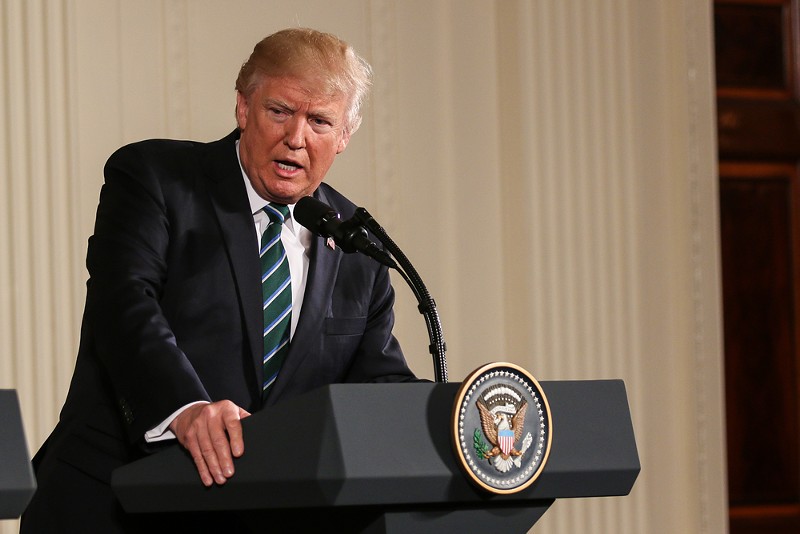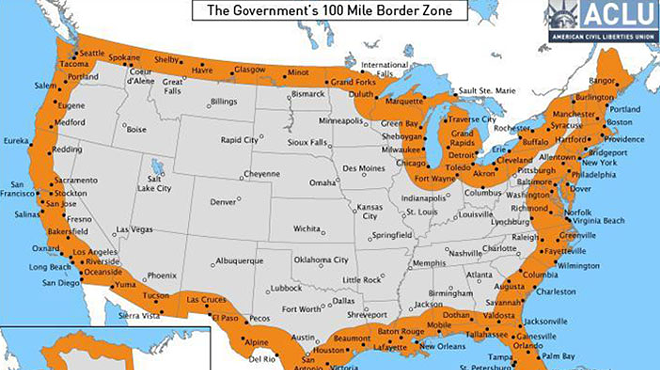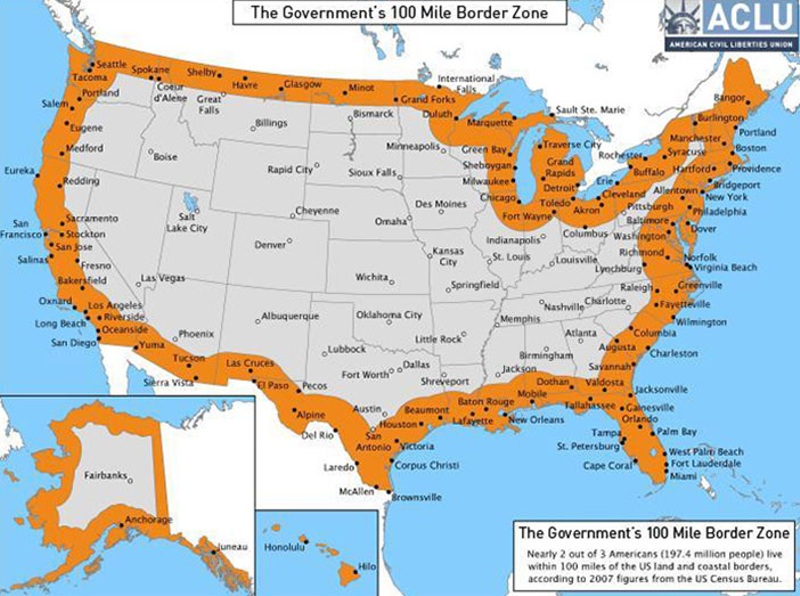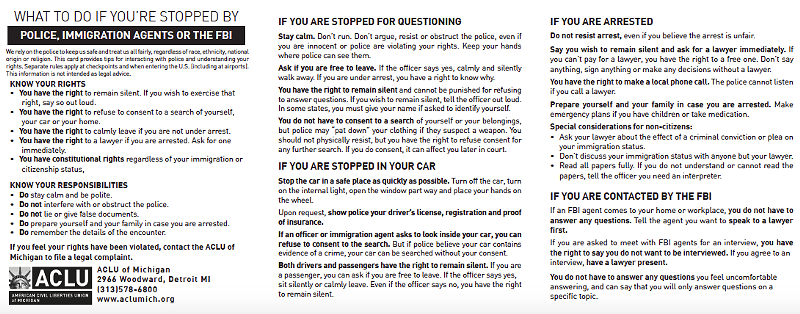President Donald Trump said on Monday night that he would start to deport millions of undocumented immigrants next week, and that his agency will deport them immediately.
"Next week ICE will begin the process of removing the millions of illegal aliens who have illicitly found their way into the United States," Trump tweeted. "They will be removed as fast as they come in."
....long before they get to our Southern Border. Guatemala is getting ready to sign a Safe-Third Agreement. The only ones who won’t do anything are the Democrats in Congress. They must vote to get rid of the loopholes, and fix asylum! If so, Border Crisis will end quickly!
— Donald J. Trump (@realDonaldTrump) June 18, 2019
Trump also praised Mexico's efforts to stop those from Central America from traveling across the southern U.S. border.
"Mexico, using their strong immigration laws, is doing a very good job of stopping people… long before they get to our Southern Border," Trump said. "The only ones who won't do anything are the Democrats in Congress. They must vote to get rid of the loopholes, and fix asylum! If so, Border Crisis will end quickly!"
Trump’s tweet comes just before he is expected to launch his 2020 campaign bid.
Earlier in June, Immigration and Customs Enforcement's new acting director, Mark Morgan, told reporters the agency was discussing the possibility of arresting and deporting families that have a "final order removal," according to The Washington Post.
The Post reported Monday night that officials who knew about the "preparations have said in recent days that the operation was not imminent," and ICE officials said they "were not aware that the president planned to divulge their enforcement plans on Twitter."
The Fourth Amendment protects Americans from random and arbitrary stops and searches. However, that doesn't necessarily apply to those who fall within the government’s 100-mile "border zone." Since Michigan is surrounded by the Great Lakes, it is considered such a zone — and the zone covers the entirety of the state, as you can see in this American Civil Liberties Union map. (In fact, two-thirds of the country’s population — more than 200 million citizens — lives within these border zones.)
Federal agents are granted "extraordinary powers" to search people or vehicles without a warrant in these border zones. But the "extraordinary powers" granted within these zones does not mean federal agents are constitutionally exempt. Agents are not allowed to pull someone over without "reasonable suspicion" of an immigration violation or crime and cannot search a vehicle without a warrant or "probable cause."
According to the ACLU of Michigan, people have the legal right to tell border agents the following — even if they are undocumented:
• "I am not required to answer your questions about my immigration status and do not wish to do so."
• "I do not consent to a search of my belongings."
• "I wish to remain silent."
People can also:
• Video record the interaction.
• Tell others they have rights and should use them, but do not block officers from performing their duties.
To learn more about immigrant rights, click here.
En español:
La Cuarta Enmienda protege a los estadounidenses de detenciones y búsquedas aleatorias y arbitrarias. Sin embargo, eso no necesariamente aplica a aquellas zonas que se encuentran a 100 millas cerca de una “zona fronteriza”. Dado que Michigan esta rodeado por los Grandes Lagos, es considerada como una de estas zonas – y la zona abarca la totalidad del estado, como se puede ver en este mapa de la Unión Americana de Libertades Civiles. (De hecho, dos tercios de la población del país, mas de 200 millones de ciudadanos, viven en estas zonas fronterizas).
Los agentes federales reciben “poderes extraordinarios” para hurgar personas o vehículos sin una orden judicial dentro de estas zonas fronterizas. Pero los “poderes extraordinarios” otorgados dentro de estas zonas no significa que los agentes federales estén exentos constitucionalmente. Los agentes no pueden parar a alguien sin una “sospecha razonable” de una violación de las leyes de inmigración o un delito y no pueden hurgar un vehículo sin una orden judicial o “causa probable.”
Según la ACLU de Michigan, las personas tienen el derecho legal de informar a los agentes fronterizos lo siguiente – incluso si son indocumentados:
• “No estoy obligado a responder sus preguntas sobre mi estado migratoria y no deseo hacerlo.”
• “No consiento a una búsqueda de mis pertenencias.”
• “Deseo permanecer en silencio.”
La gente también puede:
• Grabar un video de la interacción
• Decirle a los demás que tiene derechos y deberían usarlos, pero no bloquee a los oficiales de cumplir con sus obligaciones.
Para obtener mas información sobre los derechos de los inmigrantes, haga clic aquí.
Stay on top of Detroit news and views. Sign up for our weekly issue newsletter delivered each Wednesday.









